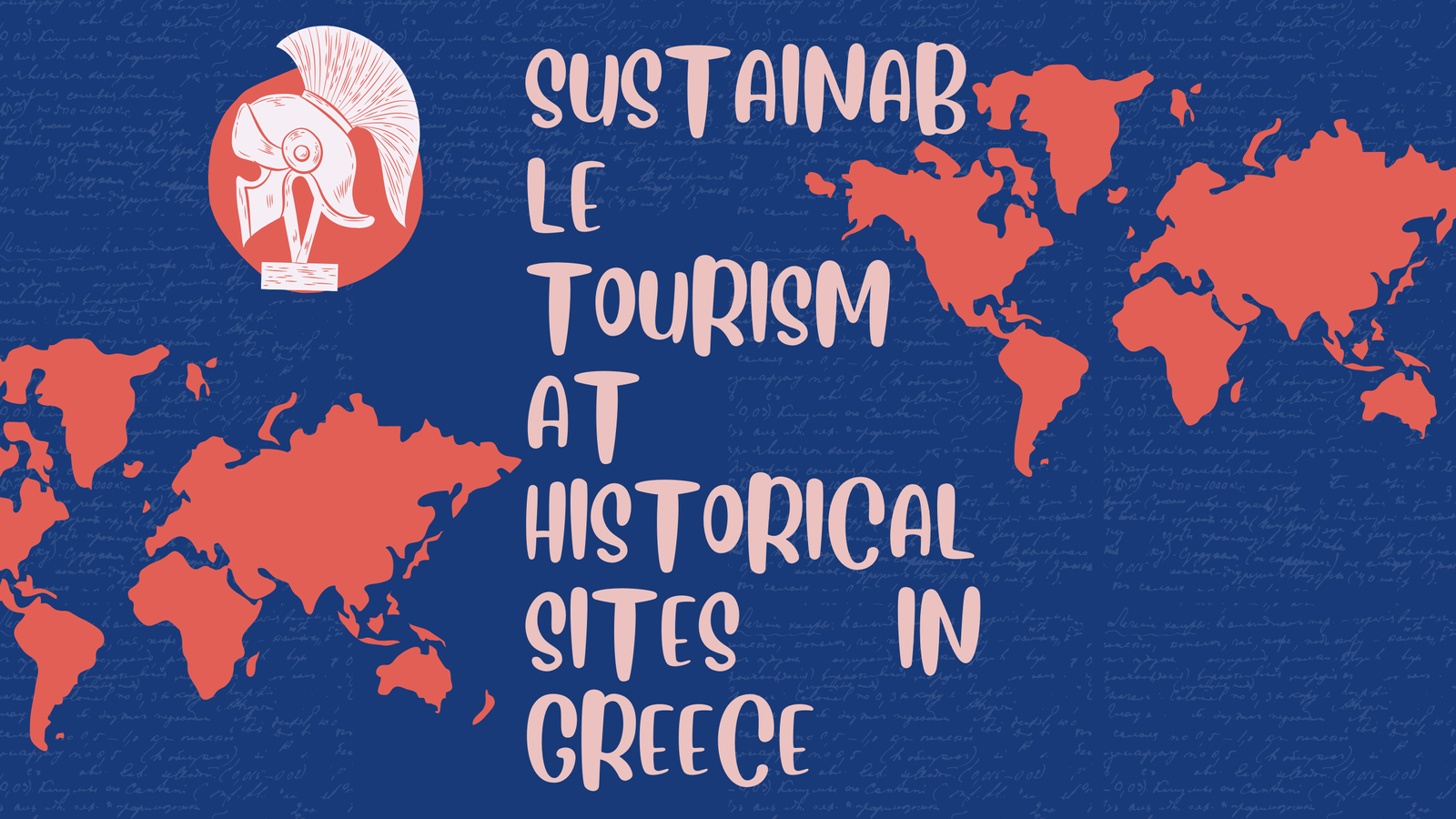Greece is a country synonymous with ancient history, stunning landscapes, and vibrant culture. Millions of travelers visit Greece every year to marvel at its historical sites, including the Acropolis, Delphi, and Meteora. However, the increasing influx of tourists poses significant threats to these treasured landmarks. Sustainable tourism is key to ensuring that these sites remain preserved for future generations while allowing visitors to enjoy them responsibly.
Table of Contents
The Significance of Greece’s Historical Sites
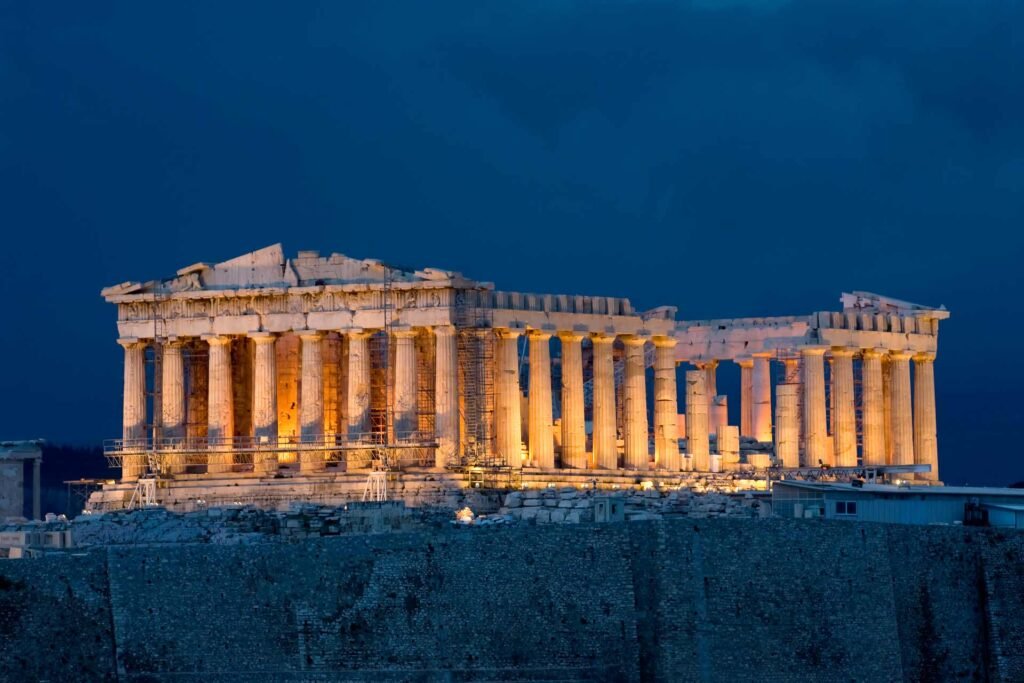
Greece is home to some of the world’s most significant historical landmarks, from the Parthenon in Athens to the ancient ruins of Olympia. These sites are not just popular attractions; they are a testament to Greece’s rich heritage and play a crucial role in the country’s economy. The tourism sector contributes around 20% of Greece’s GDP, with historical tourism forming a significant portion.
Challenges Facing Historical Sites Due to Tourism
Overcrowding and Infrastructure Strain
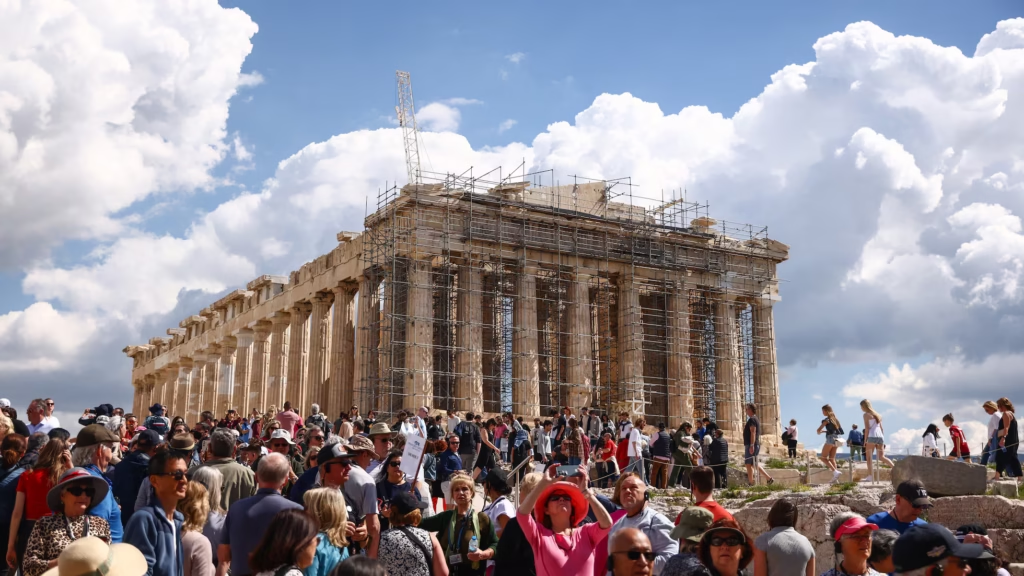
Some sites, such as the Acropolis, receive thousands of visitors daily, leading to overcrowding and strain on infrastructure.
Environmental Degradation

Pollution, littering, and carbon emissions from mass tourism contribute to the deterioration of historical sites and their surroundings.
Vandalism and Wear-and-Tear

Touching artifacts, climbing ruins, and graffiti are ongoing issues, threatening the longevity of Greece’s cultural heritage.
Principles of Sustainable Tourism
Sustainable tourism focuses on minimizing the negative impact of travel on cultural and natural environments. Key principles include:
- Responsible Travel: Being mindful of cultural and environmental impacts.
- Eco-Friendly Practices: Reducing waste, using sustainable transport, and avoiding single-use plastics.
- Cultural Respect: Learning about and respecting local customs and traditions.
Sustainable Tourism Initiatives in Greece
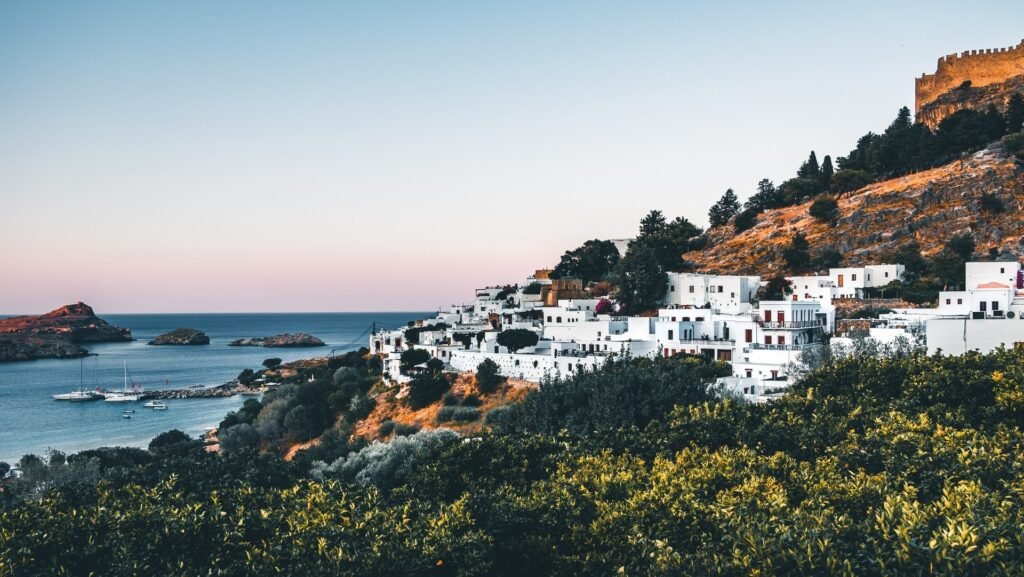
Government Policies and Conservation Efforts
The Greek government has implemented strict guidelines to regulate tourism at historical sites, including visitor limits and restoration projects.
UNESCO’s Role in Protecting Greek Heritage
Many historical sites in Greece are UNESCO World Heritage Sites, benefiting from global conservation efforts.
Community-Led Preservation Projects
Local communities are increasingly involved in preservation efforts, ensuring sustainable tourism practices align with the needs of residents.
Eco-Friendly Travel Tips for Visitors

Travelers can contribute to sustainability by:
- Choosing eco-friendly accommodations and tour operators.
- Supporting local businesses and artisans.
- Using public transport or walking instead of renting cars.
- Avoiding peak visiting hours to reduce overcrowding.
Case Studies of Sustainable Tourism in Greece
The Acropolis: Managing Tourist Flow
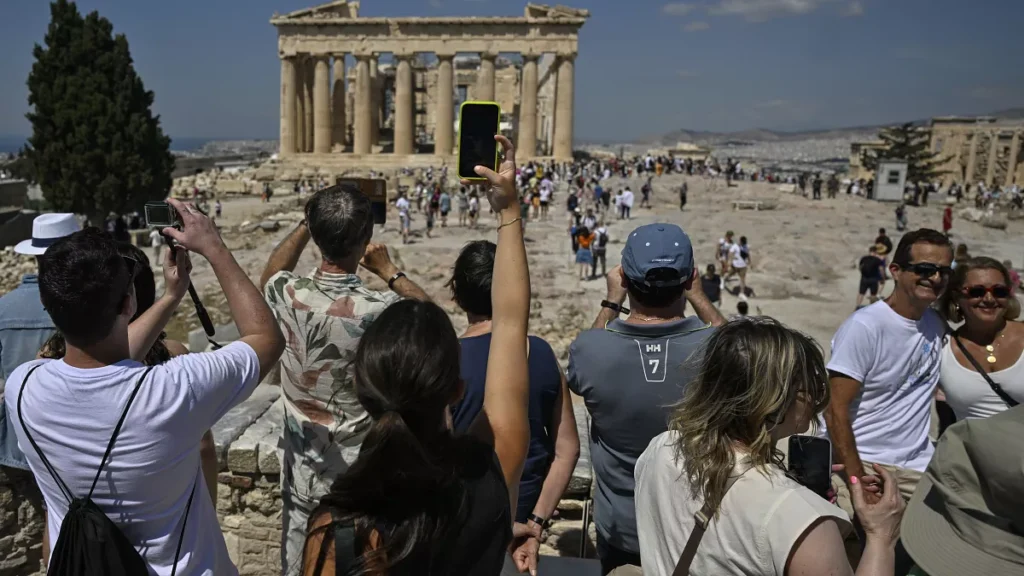
Timed entry tickets and limited visitor numbers help reduce strain on the Acropolis.
Santorini and Rhodes: Implementing Green Initiatives
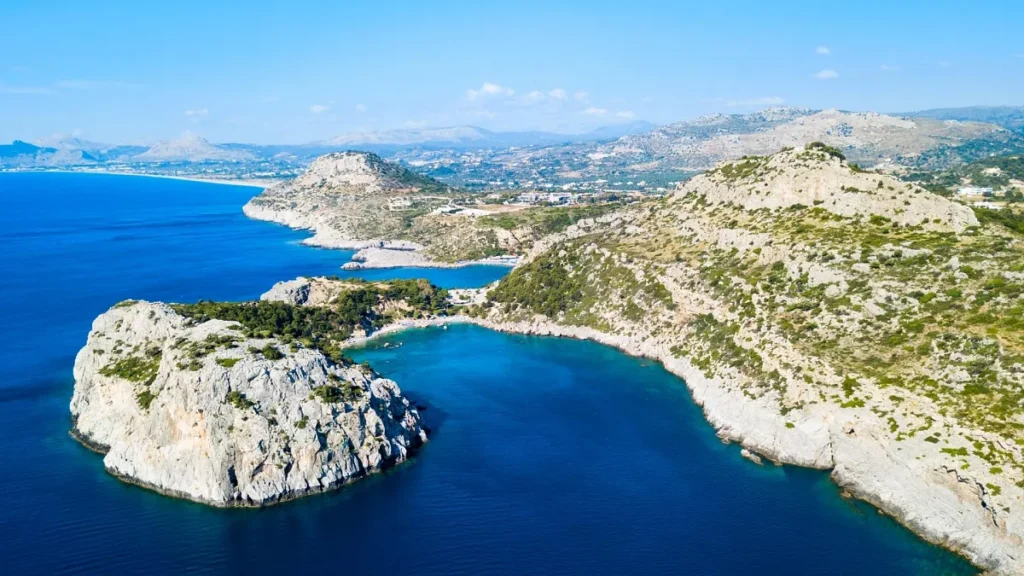
These popular islands have introduced eco-friendly hotels, solar energy, and waste reduction programs.
Meteora: A Model of Sustainable Tourism

The monasteries of Meteora balance tourism with conservation through strict visitor guidelines and community-led efforts.
Role of Technology in Sustainable Tourism

Digital Ticketing and Crowd Management
Pre-booking systems help manage tourist numbers and reduce congestion.
Virtual Tourism: An Alternative Experience
Online tours provide an alternative for those unable to visit in person, reducing physical impact on sites.
Smart Waste Management
Many Greek sites have introduced advanced waste disposal systems to maintain cleanliness.
The Future of Sustainable Tourism in Greece
As awareness of sustainability grows, Greece is expected to introduce even more eco-friendly tourism policies. Future trends include:
- Expansion of sustainable accommodations.
- Increased use of technology for site management.
- Stricter regulations to prevent overtourism.
Also Visit:
Ultimate Guide to Solo Travel Destinations in South America
Top 10 Solo Travel Destinations in South America for Adventurers
Navigating Southeast Asia: Budget Travel Tips for First-Time Travelers
Experience Luxury on a Budget Travel Tips for Southeast Asia
Budget Travel Tips for Southeast Asia: Navigating Public Transport
Conclusion
Sustainable tourism is essential to preserving Greece’s rich historical heritage. By adopting responsible travel habits, supporting local communities, and respecting cultural sites, tourists can help ensure these ancient landmarks remain intact for generations to come.

